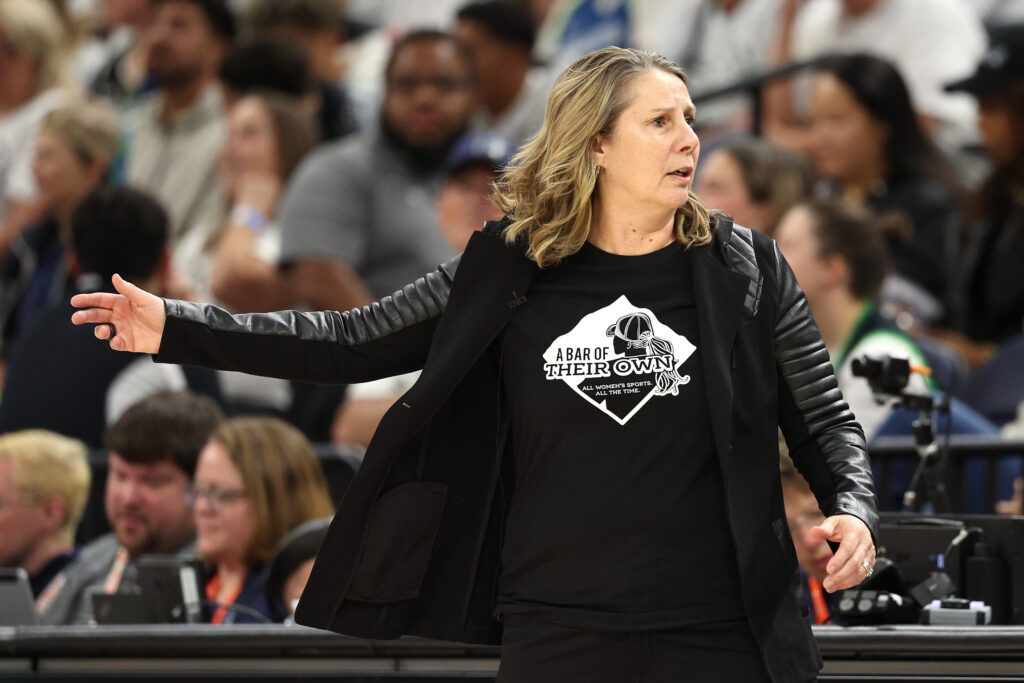Capping their sixth WNBA Finals campaign, the New York Liberty earned their first-ever championship in Sunday’s 67-62 winner-take-all overtime thriller.
As the last original WNBA franchise still playing to book a title, the Libs — who won the league’s inaugural game in 1997 — lifted the WNBA’s 28th trophy in front of a record-breaking sellout home crowd in Brooklyn.
“It means everything to me,” said New York star Breanna Stewart, who grew up in Syracuse and attended Liberty games as a kid. “I wanted to come here and I wanted to be the first.”
“I can’t wait to continue to celebrate with the city,” Stewart said after the game. “It’s going to be bonkers.”
The path to the WNBA Championship
Fueled by last year’s disappointing championship loss to the Las Vegas Aces, New York led the league in the regular season with an impressive franchise-tying record of 32-8.
After sweeping the Atlanta Dream in the first round, New York redemptively ousted the Aces in four semifinals games. The Liberty’s Finals foe was the only team to defeat them multiple times this year — 2024 Commissioners Cup winners Minnesota.
In what was arguably the most competitive series to date, the 2024 Finals were marked by record-setting come-from-behind wins, game-winning shots seemingly scripted in Hollywood, and, after offensive power in the first four tilts, a defensive masterclass in the deciding Game 5.
Liberty stars show out in Championship win
Behind her team-leading 17-point, six-rebound Game 5 performance, Jonquel Jones earned the Finals MVP crown.
“I could never dream of this,” said Jones after the game. “You know how many times I’ve been denied, it was delayed. I am so happy to do it here.”
Co-signed by the Barclays Center crowd chanting her name, the championship-clinching game’s unofficial sixth player was Nyara Sabally. In her biggest showing ever in a Liberty uniform, Sabally’s spark off the bench added 13 clutch points and seven rebounds to New York’s total.
Minnesota’s defense did a lot to stifle the Liberty, holding New York to a 10-point first quarter — their most dismal opening all year. The Lynx also kept New York shooters to just two-for-23 from behind the arc.
A large part of suppressing the Libs came from Minnesota’s success in keeping New York’s Game 3 heroes Stewart and Sabrina Ionescu decidedly quiet on Sunday, smothering their respective efforts to 4-for-15 and 1-for-19 from the field.
Despite their offensive struggles, both contributed elsewhere. Ionescu added eight assists and seven rebounds to her five points and Stewart showed out on defense with 15 rebounds alongside her 13 points.
New York’s gritty 7-2 overtime run ultimately put the game out of Minnesota’s reach. Lynx star Napheesa Collier, who posted a historic playoff run, fouled out in the game’s final seconds.

Lynx coach Reeve slams officiating in Finals loss
After the loss, Minnesota coach Cheryl Reeve had words for the officials that kept the Lynx from clinching in regulation play.
In a game that saw New York outshoot the Lynx 25-8 from the free throw line, the Lynx unsuccessfully challenged a controversial shooting foul called on Alanna Smith at the end of regulation. That ruling gave New York’s Stewart the pair of free throws that sent the game into overtime.
“I know all the headlines will be ‘Reeve cries foul,'” she told reporters. “Bring it on. Bring it on. Because this s— was stolen from us.”
“If we would have turned that clip in, they would have told us that it was marginal contact, no foul. Guaranteed. Guaranteed,” Reeve remarked.
Notably, complaints about officiating and lopsided foul calls have been raised throughout the Finals. And not just from Reeve, who also spoke on the disparity after Game 3.
New York head coach Sandy Brondello made the same plea after Friday’s Game 4 saw foul calls favor Minnesota, saying “I know Cheryl talked about it last time, but we got no calls today… All we want is fair, OK. So if we are getting hit, that’s a foul.”
Ultimately, while acknowledging Minnesota’s disappointment, Reeve’s appeal focused on the need for fair calls to ensure fair play. “This is for a championship,” Reeve said. “For both teams, let [the players] decide it.”
“This s— ain’t that hard,” she added. “Officiating, it’s not that hard.”





















